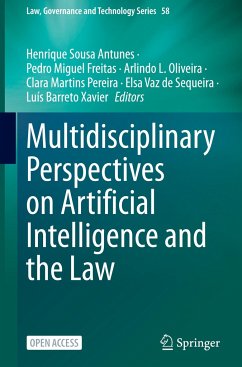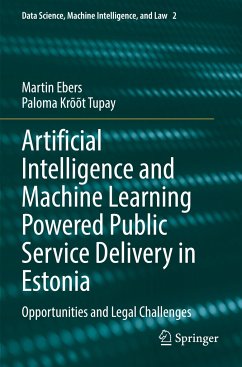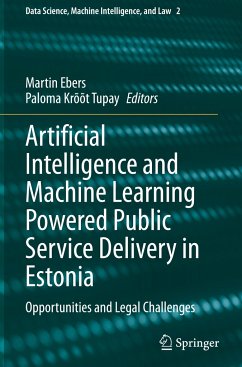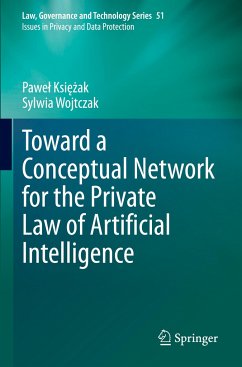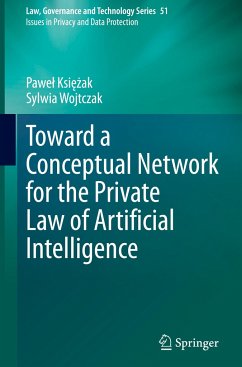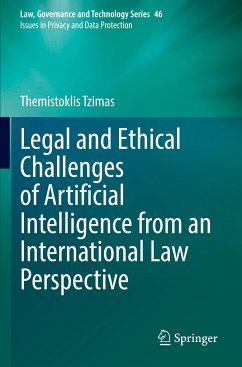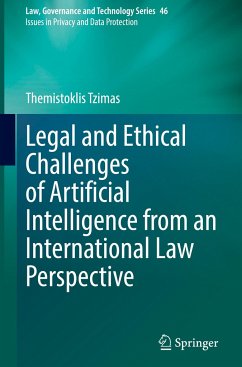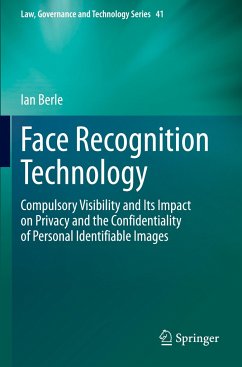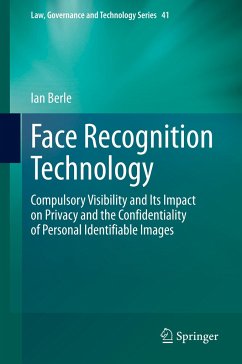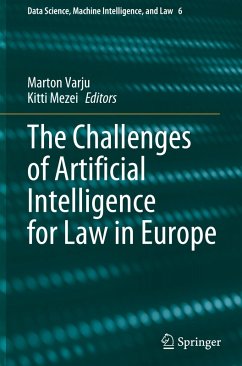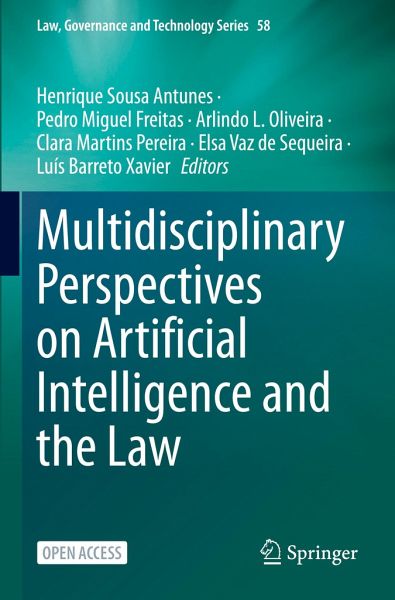
Multidisciplinary Perspectives on Artificial Intelligence and the Law
Versandkostenfrei!
Versandfertig in 6-10 Tagen
31,99 €
inkl. MwSt.

PAYBACK Punkte
16 °P sammeln!
This open access book presents an interdisciplinary, multi-authored, edited collection of chapters on Artificial Intelligence ('AI') and the Law. AI technology has come to play a central role in the modern data economy. Through a combination of increased computing power, the growing availability of data and the advancement of algorithms, AI has now become an umbrella term for some of the most transformational technological breakthroughs of this age. The importance of AI stems from both the opportunities that it offers and the challenges that it entails. While AI applications hold the promise o...
This open access book presents an interdisciplinary, multi-authored, edited collection of chapters on Artificial Intelligence ('AI') and the Law. AI technology has come to play a central role in the modern data economy. Through a combination of increased computing power, the growing availability of data and the advancement of algorithms, AI has now become an umbrella term for some of the most transformational technological breakthroughs of this age. The importance of AI stems from both the opportunities that it offers and the challenges that it entails. While AI applications hold the promise of economic growth and efficiency gains, they also create significant risks and uncertainty. The potential and perils of AI have thus come to dominate modern discussions of technology and ethics - and although AI was initially allowed to largely develop without guidelines or rules, few would deny that the law is set to play a fundamental role in shaping the future of AI.As thedebate over AI is far from over, the need for rigorous analysis has never been greater. This book thus brings together contributors from different fields and backgrounds to explore how the law might provide answers to some of the most pressing questions raised by AI. An outcome of the Católica Research Centre for the Future of Law and its interdisciplinary working group on Law and Artificial Intelligence, it includes contributions by leading scholars in the fields of technology, ethics and the law.





